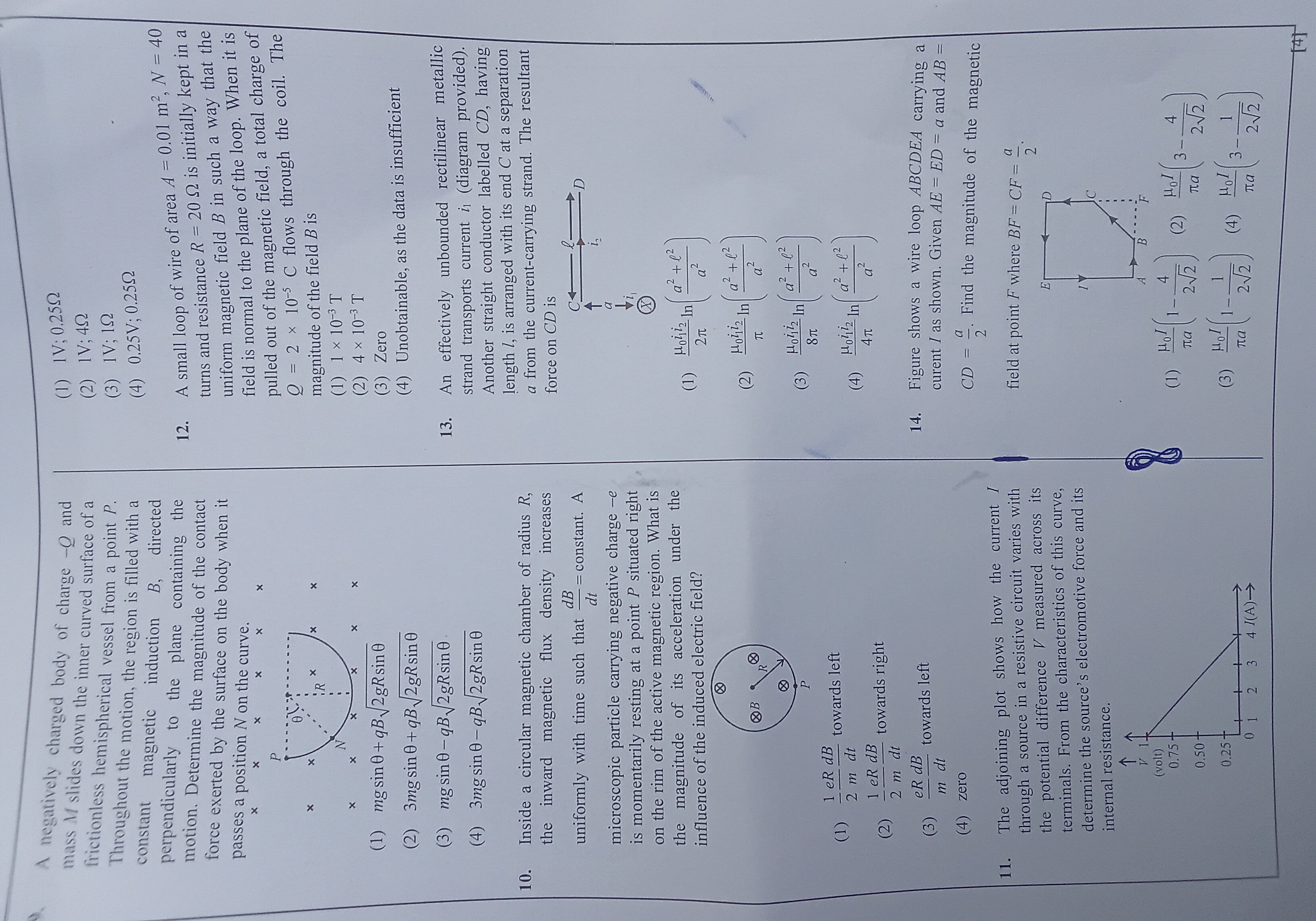Question
Question: A small loop of wire of area A = 0.01 $m^2$, N = 40 turns and resistance R = 20 Ω is initially kept ...
A small loop of wire of area A = 0.01 m2, N = 40 turns and resistance R = 20 Ω is initially kept in a uniform magnetic field B in such a way that the field is normal to the plane of the loop. When it is pulled out of the magnetic field, a total charge of Q = 2 × 10−5 C flows through the coil. The magnitude of the field B is

1 × 10−3 T
4 × 10−3 T
Zero
Unobtainable, as the data is insufficient
1 × 10−3 T
Solution
When the loop is pulled out of the magnetic field, the magnetic flux through the coil changes, inducing an electromotive force (emf) and hence a current. The total charge Q that flows through the coil is related to the induced emf and resistance by Q=REavgΔt, where Eavg is the average induced emf and Δt is the time taken to pull out the coil.
According to Faraday's law of induction, the average induced emf is given by: Eavg=−NΔtΔΦB where N is the number of turns and ΔΦB is the change in magnetic flux.
The magnetic flux ΦB through a single turn is given by ΦB=BAcosα, where B is the magnetic field strength, A is the area of the loop, and α is the angle between the magnetic field and the normal to the plane of the loop. Initially, the field is normal to the plane of the loop, so α=0∘, and ΦB,initial=BAcos(0∘)=BA. When the loop is pulled out of the magnetic field, the final flux is ΦB,final=0. So, the change in magnetic flux is ΔΦB=ΦB,final−ΦB,initial=0−BA=−BA.
Substituting this into the expression for average emf: Eavg=−NΔt−BA=ΔtNBA.
Now, we relate this to the total charge Q: Q=REavgΔt=R(ΔtNBA)Δt=RNBA.
We are given: A = 0.01 m2 N = 40 turns R = 20 Ω Q = 2 × 10−5 C
We need to find B. Rearranging the formula for B: B=NAQR.
Plugging in the values: B=(40)(0.01 m2)(2×10−5 C)(20Ω) B=0.440×10−5 B=0.44×10−4 B=10×10−4 T B=1×10−3 T
